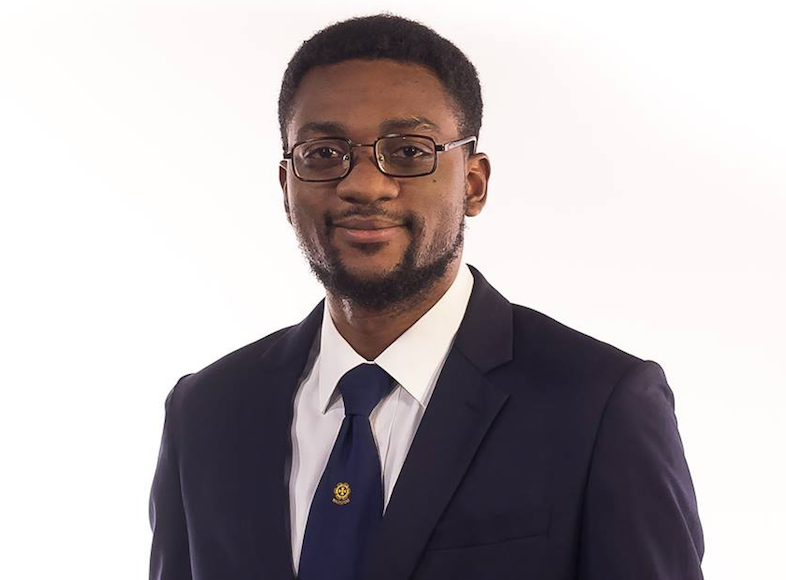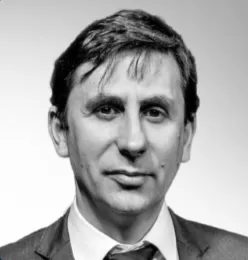
Blockchain and Entrepreneurship can be two powerful tools in the right hands. Being decentralized and away of main streams, both can reach those that are most in need without passing through middlemen.
They even get boosted if the goal is as honourable as to bring a better quality of life in those parts of the world that lack it. But that quality of life has to start from building up a new and fairer Financial Service ecosystem, where everyone is accepted. Thanks to the digital world and new technologies, financial inclusion is closer than ever before.
At least, that is what entrepreneur Dickson Nsofor thinks. Born in Jos, Nigeria, in one of the most dynamic countries in Africa, he spent his academic days in getting a degree in Information Engineering at Covenant University. Moving forward afterwards to the prestigious Nankai University of China where he obtained his Masters in International Business.
It is precisely there, in China where he started his business career, creating Lixon mobile, a low cost mobile phone for the Chinese and African Markets.
That first step is crucial in bringing financial services to outcasts markets. Providing accessible technology clears the path to literacy and inclusion in terms of financial services.
Nonetheless, Dickson Nsofor has founded Kora with a colleague, Maomao Hu, with that objective in mind. “The Kora Network is a public blockchain that deconstructs and abstracts the infrastructure needed for financial services so that new providers can easily provide financial services as needed for users, without the huge cost of establishing and running a front-to-back financial institution. It makes launching a financial services business as cheap and easy as launching a new instance on AWS, with the prime benefit of driving down costs and increasing the variety of offerings for customers.”

Mr Nsofor has shared his personal point of view of a fairer world and his Kora project with intelligenthq.com in an exclusive interview:
Q: You come from the most dynamic country in Africa Nigeria and have an education in both China and US how does it plays in your vision of the world?
A: I consider myself as very favoured to have learned from various cultures, it has indeed shaped my thinking pattern. Diversity is a major phenomenon I appreciate now and that is at the centre of every vision I drive corporately and in my personal life.
Can you tell us about your vision about the technological advances, startupization and accelerated disruption of businesses and society?
I believe technology is a big value add-on to humanity, although it has some disadvantages we can’t over look at. Startup’s are the engine room of any nation that wants to remain competitive on the global scale, as we can see, companies like Uber, Lyft, Facebook, Paypal, Instagram have shaped the world and have added numerous economic benefit whilst bringing a total overhaul of the traditional systems
One of the critical areas of today’s business is the digitalisation of areas of society, after digitalisation of money and now the digitalisation of each of us. How do you see this?
I guess in one way or the other we would all get to be digitally inclined. The cost of chipsets keeps dropping drastically, that is why I am sure one day a smartphone would cost $2
Can you tell us how do you see both finance and innovation present landscape, namely in the bridge between the big players and newcomers?
Traditional players in the finance industry are quite old and so are there systems and process, nevertheless its still the least risky and safest way to transact. On the other hand, we have the new kids on the block, disrupting finance through smart technology, breaking all barriers and redefining the standards to something different from what we all know it to be.
I think both players working together and understanding each other’s strengths and weakness would be the key to unlock the perfect service needed by the users.

How do you see cryptocurrencies/bitcoin in an increasing new scenario with DAO, Ethereum emergence, and fragmentation?
Bitcoin is more of a revolution and cultural shift than it is a technology. It’s more than “Money”. Moreso or Blockchain, its underlying technology is a technological innovation. Ethereum is the preferred platform now since its the most practically use-case to run smart contracts. Fragmentation is a big thing now but I am sure the Cosmos network would address that issue soon.
How do you see Blockchain? as a tech ledger between artificial intelligence, mobile / smart devices, enterprise / SaaS, digital technology, startup innovation, digital payments?
At the end of the day, Blockchain is just a back end Infrastructure. I see Blockchain as a ledger between anything that has value. It is the truth protocol that verifies identity of assets of any form in finance, supply chain, documentation etc.
How do you see blockchain as social impact?
The ability for to entities who don’t trust each other to transact without a central authority enables service providers to reduce the cost of service associated with third parties.
This is huge especially in a situation like Financial Inclusion. Serving the unbanked people requires low cost of operation and ability to provide excellent book keeping which what the Blockchain provides openly for free.
How do you see blockchain and Africa?
The biggest region where blockchain will have a significant Impact is in Africa, that’s why I am betting all in on Africa. Africa is not talking to each other, economically, financially and politically, I think Blockchain can fix this.
The Kora Project
Mr Dickson Nsofor and colleague Mr Maomao Hu have taken the blockchain into action trying to tackle all sort of disadvantages happening in Africa. That is basically the main goal of Kora, their own Blockchain-powered network that will provide the tools needed to build a self-sustaining, community-owned ecosystem for circulating and accumulating capital within a community.

Being asked for Kora, he shows himself confident and optimistic:
Q: Can you tell us about Kora?
A: Kora is an Infrastructure for an Inclusive community owned Financial service systems. We make it easy for anyone to provide services to the Unbanked as well as making it easy for the Unbanked to access financial services.
Can you explain how it works its business incubation?
At Kora, we believe that technology should empower instead of displace existing communities and networks in order to reach the understanding and trust needed for massive adoption. The Kora Network is built on four layers of infrastructure to provide a low cost, universal access financial services platform accessible via SMS/USSD on feature phones, or with internet access via mobile app, enabled by blockchain technology. This helps communities build self-sustaining, community-owned financial services ecosystems. By drastically reducing the cost and time required to provide financial services, and drawing a diverse set of stakeholders into an interoperable network, it unlocks the Long Tail of the global economy, benefiting populations most in need and enriching the global economy by unlocking the capital, intellect, and creativity of the underserved.
How does Kora manage its partnering with different technology companies?
We have been able to have various ecosystem partners from traditional banks in Africa, payments companies, ussd providers, Telco’s and other Blockchain industry players. We are able to connect with all key stakeholders because of the urgent need of a solution like Kora in these regions.
What are Kora main innovation / fintech DNA and your goals for the company?
We have been able to change the status quo at Kora by some key features:
We have found a way to empower existing communities through what we describe in the white paper as CVN’s – simply means simulating community local offline savings practices in a digital way on the Kora Network
Pegged Crypto-currencies, We believe very soon central banks will understand the value of pegged crypto-currencies that have the same price as local currency but with a crypto characteristics.
What are blockchain goals for Kora?
We want to be the turn key Network solution for every financial service globally starting from Africa.
You are leading an ICO for Kora can you tell about it?
Yeah, we have just sold out the first trenches late November of about $1 million. The private sale would start 2nd week in December 2017 so everyone who is interested and legally permitted can partake in that.
What is the vision for the future?
The success of the Kora Project will be a milestone in the long running quest to alleviate poverty for billions of people and to let everyone share in the wealth created globally.
At Kora, Our vision is to create opportunity for everyone in the world.

Dinis Guarda is an author, academic, influencer, serial entrepreneur, and leader in 4IR, AI, Fintech, digital transformation, and Blockchain. Dinis has created various companies such as Ztudium tech platform; founder of global digital platform directory openbusinesscouncil.org; digital transformation platform to empower, guide and index cities citiesabc.com and fashion technology platform fashionabc.org. He is also the publisher of intelligenthq.com, hedgethink.com and tradersdna.com. He has been working with the likes of UN / UNITAR, UNESCO, European Space Agency, Davos WEF, Philips, Saxo Bank, Mastercard, Barclays, and governments all over the world.
With over two decades of experience in international business, C-level positions, and digital transformation, Dinis has worked with new tech, cryptocurrencies, driven ICOs, regulation, compliance, and legal international processes, and has created a bank, and been involved in the inception of some of the top 100 digital currencies.
He creates and helps build ventures focused on global growth, 360 digital strategies, sustainable innovation, Blockchain, Fintech, AI and new emerging business models such as ICOs / tokenomics.
Dinis is the founder/CEO of ztudium that manages blocksdna / lifesdna. These products and platforms offer multiple AI P2P, fintech, blockchain, search engine and PaaS solutions in consumer wellness healthcare and life style with a global team of experts and universities.
He is the founder of coinsdna a new swiss regulated, Swiss based, institutional grade token and cryptocurrencies blockchain exchange. He is founder of DragonBloc a blockchain, AI, Fintech fund and co-founder of Freedomee project.
Dinis is the author of various books. He has published different books such “4IR AI Blockchain Fintech IoT Reinventing a Nation”, “How Businesses and Governments can Prosper with Fintech, Blockchain and AI?”, also the bigger case study and book (400 pages) “Blockchain, AI and Crypto Economics – The Next Tsunami?” last the “Tokenomics and ICOs – How to be good at the new digital world of finance / Crypto” was launched in 2018.
Some of the companies Dinis created or has been involved have reached over 1 USD billions in valuation. Dinis has advised and was responsible for some top financial organisations, 100 cryptocurrencies worldwide and Fortune 500 companies.
Dinis is involved as a strategist, board member and advisor with the payments, lifestyle, blockchain reward community app Glance technologies, for whom he built the blockchain messaging / payment / loyalty software Blockimpact, the seminal Hyperloop Transportations project, Kora, and blockchain cybersecurity Privus.
He is listed in various global fintech, blockchain, AI, social media industry top lists as an influencer in position top 10/20 within 100 rankings: such as Top People In Blockchain | Cointelegraph https://top.cointelegraph.com/ and https://cryptoweekly.co/100/ .
Between 2014 and 2015 he was involved in creating a fabbanking.com a digital bank between Asia and Africa as Chief Commercial Officer and Marketing Officer responsible for all legal, tech and business development. Between 2009 and 2010 he was the founder of one of the world first fintech, social trading platforms tradingfloor.com for Saxo Bank.
He is a shareholder of the fintech social money transfer app Moneymailme and math edutech gamification children’s app Gozoa.
He has been a lecturer at Copenhagen Business School, Groupe INSEEC/Monaco University and other leading world universities.










